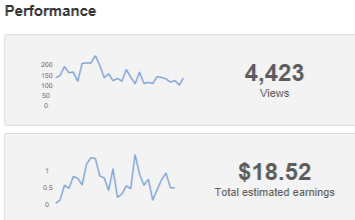As soon as you become self-employed, you should think about which corporate and which personal insurance you should take out. There is a wide variety of types of insurance. But which ones really make sense and which ones are affordable at all. An experience report.
Attention: This is your own experience. I'm not an insurance agent (God forbid) nor do I work for an insurance company.
Why should you take out insurance at all?
When you step into self-employment, the safe and comfortable time is over. From now on you are responsible for your own professional activities. There is no longer a boss holding his head for you. You're the boss now.
For this reason, and because you now have a lot more options than an employee, you should deal intensively with insurance for your company and yourself. Because if you get sick or something goes wrong professionally, nobody will help you. You have to take care of that yourself.
Corporate insurance
One part of the possible insurance for the self-employed and companies is the company insurance. These are insurance policies that affect the professional activity and the company itself.
Here is an overview of the company insurances that I found during my research:
Public liability / professional liability
Business liability covers liability risks for entrepreneurs and self-employed people from their professional activities (as well as checking whether the claims against the insured are legitimate at all). For some professional groups there is even a legal obligation to take out this insurance. As with most insurance companies, the integrated services are very different, so that a closer comparison is worthwhile.
There are, for example, special public liability insurance for certain industries, e.g. for web designers. Special cases of this branch are already built into it and that saves the extensive adjustment of a general public liability insurance.
Unfortunately there is no insurance against warnings, but that would definitely be a hit!
Financial loss liability insurance
This insurance is a special form of professional liability insurance. This is particularly suitable for entrepreneurs who work with their customers 'assets or whose activities pose a particular risk to the customers' assets. (If, as a programmer, for example, I paralyze the very profitable online shop of a customer for a few days.)
The difference to professional liability is therefore mainly the higher sum insured for financial losses.
Legal protection
As an entrepreneur or self-employed person, there is a permanent risk of being dragged to court by a customer, supplier, competitor or other person. This is why professional legal protection insurance * includes many types of legal protection, e.g. labor, administrative or tax legal protection before courts.
There are also more specific insurances (machine insurance, business interruption, etc.) which I don't want to go into in more detail.
Personal insurance
In addition to the operational risks, there are also many personal risks for the self-employed and start-ups. Just think about what happens when you get seriously ill. No employer continues to pay here. But you can also insure other private risks as a self-employed person.
Here is an overview of the personal insurance that I found during my research:
Life insurance / occupational disability
As soon as you have a family, you should definitely take out life insurance *. This pays either only in the event of death (term life insurance) or also when a certain age is reached.
You can often combine this life insurance with occupational disability insurance *. This can also be useful. However, this also depends on the activity. Since I am at the computer, I simply have less risk than a roofer.
As a self-employed person / entrepreneur you have the choice between statutory and private health insurance . I found out more about this from the consumer advocates. Both variants have risks. Because statutory health insurance is nowhere near as safe for voluntary members and it is also more expensive. If you still see how the statutory benefits are less and less, should the PKV watch at least once.
The private health insurance* On the other hand, it is cheaper especially for younger people and also offers more services. However, you are not safe from price increases here, especially in old age. In addition, you can only return to statutory health insurance under certain conditions. From a certain age (I think 55) that doesn't work anymore.
Precise selection and information is very important, especially with this important and long-term insurance. Back then, I made a lot of comparisons before I decided on private health insurance .
Hospital daily allowance insurance
An additional insurance* that pays you a daily allowance for longer hospital stays. This can save the financial head of the self-employed, especially in the case of serious illness or chronic illnesses.
private liability
In addition to corporate liability, there are also a number of private liability insurances *. In addition to the well-known motor vehicle liability insurance, you can also insure yourself against various other claims. Everyone has to decide for themselves how much sense that makes.
Employers' liability
insurance association Insurance with one's own employers liability insurance association is only compulsory for employees (entrepreneurs from some professional groups must also have compulsory insurance). But the entrepreneur himself can also take out insurance here voluntarily. The employers' liability insurance association is the statutory body for accident insurance. So anyone injured at work can then take advantage of this insurance.
Alternatively, you can of course take out private accident insurance.
Pension insurance (statutory / private)
I worked as an employee for around 6 years. The pension entitlements from this time are quite “clear”, if you can say that. For the self-employed / start-ups, it is therefore important to start private retirement provision as early as possible , as it will then be cheaper.
In addition to pension insurance *, there are other forms of old-age provision.
In any case, make sure that you factor in inflation. Example: If you take out private pension insurance that brings you 1,000 euros / month in old age, that doesn't sound bad. Note, however, that 1,000 euros will only be worth around half in 30 years. So you need a pension of almost 2,000 euros in 2039 for purchasing power of 1,000 euros today. (with 2% inflation per year)
Unemployment insurance
The much scolded Employment Agency offers a very interesting offer for start-ups. Start-ups can insure themselves against unemployment here. This insurance is initially limited to the end of 2010, but could be extended depending on political will.
Even so, insurance is very interesting. Where can you get self-employed insurance against unemployment for EUR 25.73 (West) or EUR 21.68 (East) / month. In any case, I think this makes sense for start-ups who really don't know whether their business idea will be successful or not.
There is also a lot more with private insurance (household insurance ...). You should find out more here if necessary.
How to find the "best" insurance
There is no such thing as the “best” insurance. Everyone has to find out more and compare their own needs with the insurance benefits. It can also be cheaper to take out everything with one insurance company with discounts than to go to the cheapest provider for each individual insurance company.
In any case it means to compare. Not only in terms of price, but above all in terms of content. Because most insurance companies seem to deliberately have relatively complicated service descriptions. Especially so that they cannot be easily compared with other insurance companies.
Many insurance companies offer special insurance packages for start-ups. Here, too, you have to be careful. Because often there are also insurances included that you don't even need and make the package more expensive than if start-ups only take out the appropriate insurance individually.
Conclusion
Contact a trusted insurance agent or use the services of a reputable insurance broker. Under no circumstances should you sign the first offer you receive.
It is important not to underestimate the risks as a self-employed person, but not to overdo them either. If you want to insure yourself against everything, you pay for yourself.
I thought about which possible insurance cases are really existence-threatening and which "only" cost money. I have insured life-threatening insurance cases, with the others I bear the risk myself.






0 Comments
Please do not enter any spam link in the comment box.